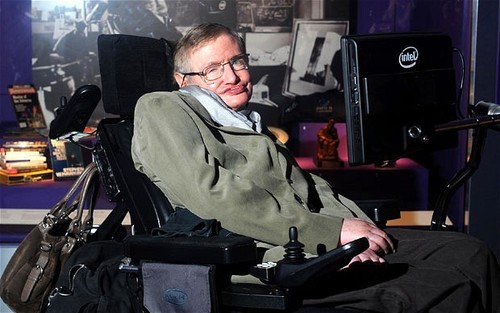Via Scoop.it – ALS Lou Gehrig’s Disease
As the saying goes, there is good news and there is bad news. Here is the bad news: Right now, there are an estimated 5.4 million Americans suffering from Alzheimer’s disease, one million suffering from Parkinson’s, over five million who have a disease related to a traumatic brain injury, 265,000 with spinal cord injuries, 30,000 who have ALS (Lou Gehrig’s disease), and 129,000 who have brain cancer. Over 25 million Americans also suffer from diabetes – about 8.3% of the population – and the problem is growing. After that, it’s hard to believe there is good news, but here it is: R & D breakthroughs are happening in science and biotechnology at a remarkable pace to deal with these diseases. Biotech companies are on the front lines to find cures for life-threatening diseases. There are currently 800 new treatments being developed for cancer by biotech companies, 300 for heart disease, 200 for diabetes and 100 for Alzheimer’s, according to the Biotechnology Industry Organization. Some companies, such as the one I represent, Neuralstem, Inc., are using state-of-the-art stem cell research to attack diseases such as ALS, brain and spinal cord injuries, and down the road, Parkinson’s and Alzheimer’s. What we need to do now is accelerate this research and speed up the development of new cures for those in desperate need. America landed a man on the moon in less than a decade and yet it takes 10-15 years to take a new drug from discovery to treating a patient. Given the pace of scientific change, America is held back and patients are suffering because of the long time lags. Investors and private funders are reluctant to invest with the regulatory barriers placed in their way. The FDA simply must keep pace with the safe and effective development of new, innovative, scientific breakthroughs that can literally provide hope for those with life-threatening diseases. The old, bureaucratic ways simply won’t work in the 21st century.

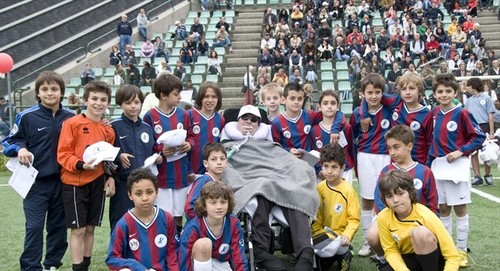
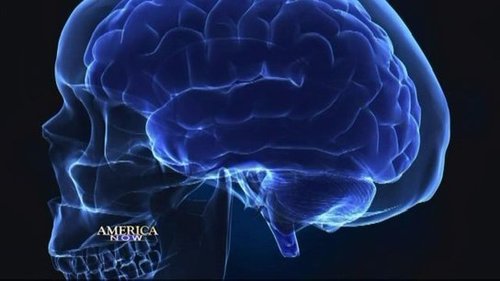
 For three long and intense days in early March, The ALS Association brought together more than 120 researchers, drug developers, government officials, and others to brainstorm ways to accelerate drug discovery for the treatment of ALS. The meeting was packed with presentations, discussions, and ideas for collaboration to solve what everyone recognized is a difficult problem. Although participants didn’t minimize the difficulty of the challenge, they expressed optimism that progress is being made. “The last eight months have been the most exciting in the history of ALS genetics,” according to Don Cleveland, Ph.D., Professor of Medicine, Neurosciences, and Cellular and Molecular Medicine at the University of California at San Diego. The discovery of the C9ORF72 gene mutation, which is responsible for more than one quarter of familial ALS, has set the field abuzz with new ideas for understanding the causes of the disease. In addition, the newly discovered ubiquilin2 gene emphasizes the importance of protein aggregation as a likely mechanism in the disease. Other new findings have also been recognized for their potential importance in understanding the causes of ALS and for pointing to likely targets for drug development. These include excitotoxicity, toxic accumulation of RNA and inflammation. “The excitement is palpable among ALS researchers that we are getting closer to truly understanding the process of the disease,” said ALS Association Chief Scientist Lucie Bruijn, Ph.D., who organized the meeting. “That understanding is crucial to developing treatments that have the best hope for slowing or stopping ALS.”
For three long and intense days in early March, The ALS Association brought together more than 120 researchers, drug developers, government officials, and others to brainstorm ways to accelerate drug discovery for the treatment of ALS. The meeting was packed with presentations, discussions, and ideas for collaboration to solve what everyone recognized is a difficult problem. Although participants didn’t minimize the difficulty of the challenge, they expressed optimism that progress is being made. “The last eight months have been the most exciting in the history of ALS genetics,” according to Don Cleveland, Ph.D., Professor of Medicine, Neurosciences, and Cellular and Molecular Medicine at the University of California at San Diego. The discovery of the C9ORF72 gene mutation, which is responsible for more than one quarter of familial ALS, has set the field abuzz with new ideas for understanding the causes of the disease. In addition, the newly discovered ubiquilin2 gene emphasizes the importance of protein aggregation as a likely mechanism in the disease. Other new findings have also been recognized for their potential importance in understanding the causes of ALS and for pointing to likely targets for drug development. These include excitotoxicity, toxic accumulation of RNA and inflammation. “The excitement is palpable among ALS researchers that we are getting closer to truly understanding the process of the disease,” said ALS Association Chief Scientist Lucie Bruijn, Ph.D., who organized the meeting. “That understanding is crucial to developing treatments that have the best hope for slowing or stopping ALS.”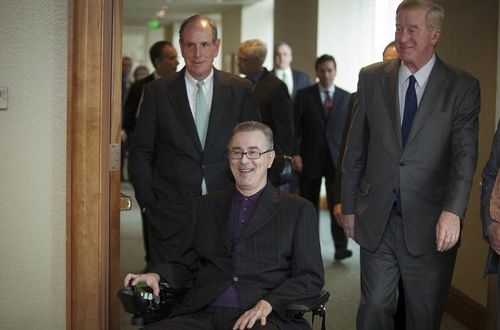
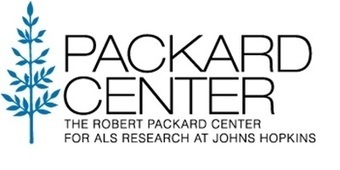 Researchers first associated mutations in the SOD1 gene with familial ALS in 1993, one of the first times that a specific gene had been associated with the illness. Further studies showed that the SOD1 protein doesn’t work properly even in sporadic ALS patients without a known mutation in the gene, although scientists weren’t sure exactly what was causing this protein to malfunction. A new study published today in the Proceedings of the National Academy of Sciences by Packard Center Science Director Piera Pasinelli showed that SOD1 is over-oxidized and doesn’t fold properly in lymphoblasts of sporadic ALS patients with bulbar onset. This over-oxidized SOD1 acquires toxic properties similar to those seen in mutant SOD1, linking mechanisms of toxicity between a subset of sporadic and familial patients respectively. “So far, this is the first time that it is shown that wild-type SOD1 is modified by oxidation in ALS using patients’ cells. This shows a specific mechanism of toxicity of an aberrant wild-type SOD1 in sALS- a mechanism that has been teased out for mutant SOD1 and allows for the design of target-based therapies that have the potential to go beyond the limited numbers of familial SOD1 patients,” Pasinelli said. “We used peripheral blood cells, in which the presence of an over-oxidized SOD1 has the potential to become a biomarker to classify different populations of sALS patients.
Researchers first associated mutations in the SOD1 gene with familial ALS in 1993, one of the first times that a specific gene had been associated with the illness. Further studies showed that the SOD1 protein doesn’t work properly even in sporadic ALS patients without a known mutation in the gene, although scientists weren’t sure exactly what was causing this protein to malfunction. A new study published today in the Proceedings of the National Academy of Sciences by Packard Center Science Director Piera Pasinelli showed that SOD1 is over-oxidized and doesn’t fold properly in lymphoblasts of sporadic ALS patients with bulbar onset. This over-oxidized SOD1 acquires toxic properties similar to those seen in mutant SOD1, linking mechanisms of toxicity between a subset of sporadic and familial patients respectively. “So far, this is the first time that it is shown that wild-type SOD1 is modified by oxidation in ALS using patients’ cells. This shows a specific mechanism of toxicity of an aberrant wild-type SOD1 in sALS- a mechanism that has been teased out for mutant SOD1 and allows for the design of target-based therapies that have the potential to go beyond the limited numbers of familial SOD1 patients,” Pasinelli said. “We used peripheral blood cells, in which the presence of an over-oxidized SOD1 has the potential to become a biomarker to classify different populations of sALS patients.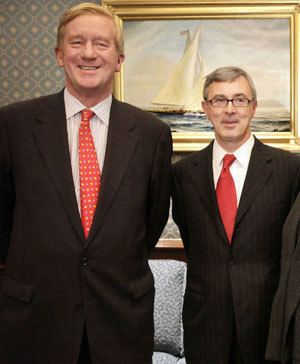 William Weld and Paul Cellucci had known each other only a short time when they joined forces to run on a ticket for governor, a partnership that came to define an era in Massachusetts politics. More than two decades later, the old friends and political allies are teaming up again in a final collaboration, a poignant, deeply personal stand against ALS, the ravaging disease Cellucci now confronts. For Cellucci, who made his diagnosis public early last year, the ambitious fund-raising effort has lent him purpose and comfort, an ease to his mind as his body fails. Working the phones with Weld like they did in their political heyday, he said, has felt like old times.
William Weld and Paul Cellucci had known each other only a short time when they joined forces to run on a ticket for governor, a partnership that came to define an era in Massachusetts politics. More than two decades later, the old friends and political allies are teaming up again in a final collaboration, a poignant, deeply personal stand against ALS, the ravaging disease Cellucci now confronts. For Cellucci, who made his diagnosis public early last year, the ambitious fund-raising effort has lent him purpose and comfort, an ease to his mind as his body fails. Working the phones with Weld like they did in their political heyday, he said, has felt like old times. From Sunday morning to Tuesday evening last week, there was a lot of talk of MND research going on in Liverpool. The reason for this ‘hotspot’ of discussions was due to the annual meeting of an international consortium of MND researchers taking place at the University of Liverpool. The 10th International Consortium on SOD1 and ALS (ICOSA) meeting took place last weekend (4 – 5 March). In 2001, five laboratories came together to form ICOSA, where the aim was to share knowledge to design better-informed experiments to understand the rare, inherited SOD1 form of MND. MND Association grantee, Prof Samar Hasnain was one of its founding members. Success of this philosophy of sharing knowledge prior to publication has resulted in several leading groups joining the effort, looking at other causes of inherited MND too. A tradition of ICOSA meetings is to hold an open meeting for sharing latest results with a wider audience, following their closed meeting. Thus, on Tuesday 6 March, an open meeting was held to allow the exchange of the latest results and ideas between ICOSA members and the UK MND research community.
From Sunday morning to Tuesday evening last week, there was a lot of talk of MND research going on in Liverpool. The reason for this ‘hotspot’ of discussions was due to the annual meeting of an international consortium of MND researchers taking place at the University of Liverpool. The 10th International Consortium on SOD1 and ALS (ICOSA) meeting took place last weekend (4 – 5 March). In 2001, five laboratories came together to form ICOSA, where the aim was to share knowledge to design better-informed experiments to understand the rare, inherited SOD1 form of MND. MND Association grantee, Prof Samar Hasnain was one of its founding members. Success of this philosophy of sharing knowledge prior to publication has resulted in several leading groups joining the effort, looking at other causes of inherited MND too. A tradition of ICOSA meetings is to hold an open meeting for sharing latest results with a wider audience, following their closed meeting. Thus, on Tuesday 6 March, an open meeting was held to allow the exchange of the latest results and ideas between ICOSA members and the UK MND research community.